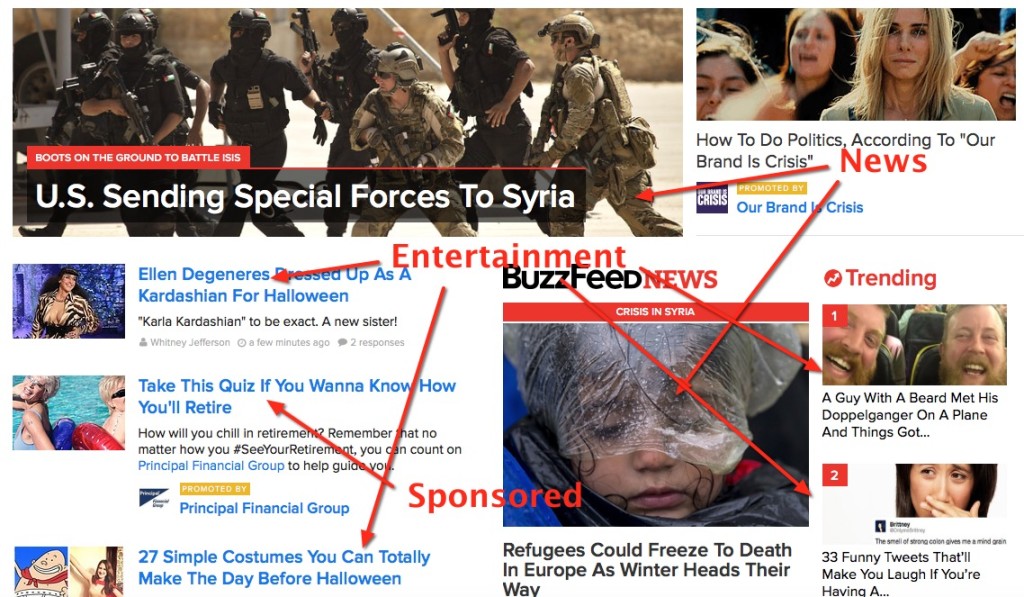Ad Disclosure
On The Media Slaughtering That Happened Today
By Kyle Scott
Published:

See, here’s what I think most of people don’t get about online media: people don’t like words. At least, not as much as the people who write them do. Grantland, which ESPN shut down today, churned out fine work. But even as someone who sits at his computer all day and whose job it is to read about sports, I find it difficult to read more than one or two pieces of the length Grantland often produced. People have lives, things to do. Generally speaking, news and commentary is a distraction or mild form of entertainment. So for every lengthy piece that is too interesting to pass up, there are 10 pieces that are boring as shit, bordering on self-indulgent. I follow a lot of journalists on Twitter, and too often you’ll see a Tweet like this: Just an exquisite piece from [insert writer you’ve never heard of] about the downfall of the individual scorekeeper and how data has replaced a once manual process. That could be a terrific piece, but, honestly, who has time to read it?
https://twitter.com/molly_knight/status/660160346292776960
It’s not fair if it loses money for the outlet paying them.
What’s made sites like Buzzfeed, Deadspin, or even the oft-self-indulgent Verge so successful is that they complement the long-form stuff with stuff that gets clicks and makes money– short, readable posts, lists or other forms of entertainment. The reasons why sitcoms are more promoted than news programs and morning shows have #buzzy segments surrounding political segments are the same reasons why Buzzfeed has 20 lists for every hardcore news story. The entertaining stuff makes the money and allows them to do the smarter stuff. [The same way my one-sentence post about the GameDay truck being parked at Home Depot, which took me less than a minute to write, will get three times as many views as this post, which will take about 30.] Too often, journalists think they work for non-profits.
Grantland had too many words. Readers Paul and Justin nailed it:
Grantland thought they were too good for the former (generally speaking). And though I’m not sure they failed to consider the latter, the fact is that 50% of readership these days comes from mobile devices. You need to have content people can read while waiting in line at Starbucks, or waiting for a table, to support the stuff they read while taking a shit. Of course, losing Bill Simmons, the ultimate shitter scribe, doesn’t help.
…
For years, newspapers could get away with charging extreme advertising rates because they were one of the only games in town. If you were a car dealer and wanted to reach a lot of people, newspapers and TV were the ways to do it. Classified ads printed money for papers, until Craigslist came along. With the rise of the web, advertisers could be smarter and more efficient about how they spent their money. They could actually track conversions. And though you can’t always put a price on a branding premium, it became easy for sponsors to see that newspapers were, largely, ripping them off. [As an ad sales rep for the Inquirer and Daily News, we were instructed to tell advertisers that up to three people read each copy of the paper, which was, obviously, complete bullshit.] This problem was compounded by declining circulation. Newspapers, too, suffered from some of the same stuffy problems that plagued Grantland – I can assure you that an Inquirer reporter thinks they are better than just about any other local writer whose publication actually makes money – which means they were fighting a two-pronged battle: often-uninteresting content combined with a dying medium (business model).
So, maybe, the merging of the Inquirer and Daily News, and the “suspension” of Grantland, will lead some to finally acknowledge that there’s a place for both the smart stuff and the entertaining stuff. Because often, the entertaining stuff pays for the smart stuff. Ergo, here’s a picture of the girls of CBS 3 and one of their lucky coworkers:
https://twitter.com/djtimmyjam/status/647378080919646208
Kyle Scott is the founder and editor of CrossingBroad.com. He has written for CBS Philly and Philly Voice, and been a panelist or contributor on NBC Sports Philly, FOX 29 and SNY TV, as well as a recurring guest on 97.5 The Fanatic, 94 WIP, 106.7 The Fan and other stations. He has more than 10 years experience running digital media properties and in online advertising and marketing.
